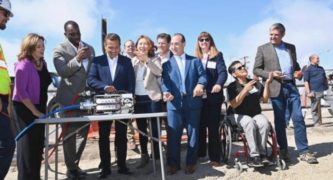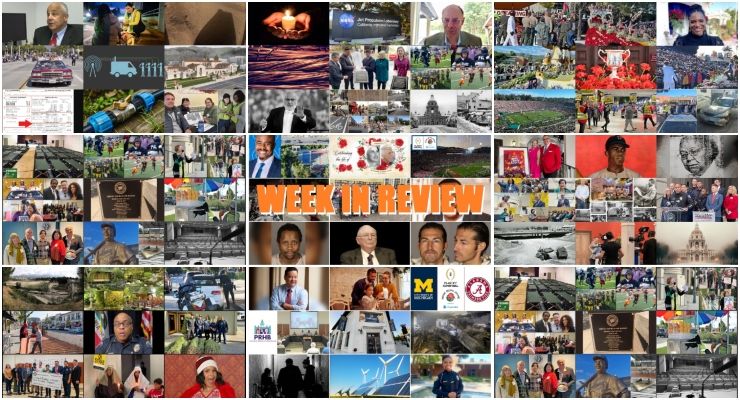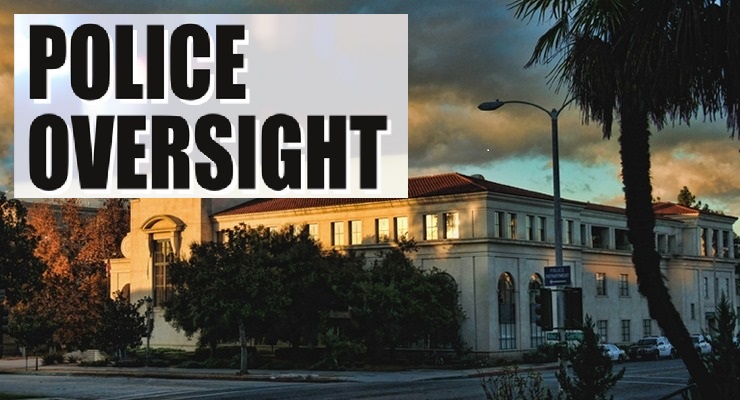
The Middle-Mile Broadband Initiative is a partnership among several entities. As specified in SB 156, the California Department of Technology (CDT) and its Office of Broadband and Digital Literacy is overseeing the acquisition and management of contracts for the development, construction, maintenance and operation of the network.
Los Angeles County is in line to get 518 miles of the proposed 10,000 miles of build.
Pasadena will get 9.5 miles of the MMBI network — which will follow Highway 210 south from La Cañada and then east out towards Arcadia, as well as following 134 west towards Glendale.
“The middle-mile network will create more competition among internet service providers to offer lower cost service. The goal is to create digital equity, access and inclusion for all Californians through a combination of infrastructure, and affordability programs,” Mark Monroe, Deputy Director of Middle-Mile Broadband Initiative said.
Pasadena Councilmembers welcomed the recent development.
Councilmember Gene Masuda said the development will greatly benefit businesses and residents, especially those that are living in the hilly areas in Pasadena.
“In Pasadena District 4, neighborhoods like Fox Ridge, Eaton Canyon, Sierra Madre Villa, parts of Upper Hastings Ranch, and other areas would welcome faster reliable high-speed internet service,” Masuda said.
“It is important for all adults as well as our children to enjoy faster internet connectivity for work, studying, and having access to information. In today’s world, high-speed internet is a must to improve our quality of life.”
Councilmember Felicia Williams said in her statement that “this is an amazing opportunity for Pasadena to close the digital divide. Currently our library offers open access, and many non profits like Day One have after school access, but we need more to ensure that every citizen, resident, and business has access to the same opportunities to grow, learn, and thrive.”
California’s Middle-Mile Broadband Initiative is set to bring high-speed internet to communities across the state, including about ten miles of network in Pasadena.
As specified in Senate Bill 156, the initiative aims to provide high-speed internet to all Californians, particularly those in underserved communities.
Los Angeles County is in line to get 518 miles of the proposed 10,000 miles of build.
Pasadena will receive 9.5 miles of the MMBI network, which will follow the I-210 freeway south from La Cañada and then east towards Arcadia and 134 west towards Glendale.
The Middle-Mile Broadband Initiative, known as MMBI, is a partnership between various entities, with the California Department of Technology and its Office of Broadband and Digital Literacy overseeing the acquisition and management of contracts for the network’s development, construction, maintenance, and operation.
“The middle-mile network will create more competition among internet service providers to offer lower cost service,” said Mark Monroe, Deputy Director of the Middle-Mile Broadband Initiative. “The goal is to create digital equity, access, and inclusion for all Californians through a combination of infrastructure and affordability programs.”
Local leaders in Pasadena have welcomed the development, with Councilmember Gene Masuda stating that it will greatly benefit businesses and residents, particularly those living in hilly areas.
“In Pasadena District 4, neighborhoods like Fox Ridge, Eaton Canyon, Sierra Madre Villa, parts of Upper Hastings Ranch, and other areas would welcome faster reliable high-speed internet service,” Masuda said.
“It is important for all adults, as well as our children, to enjoy faster internet connectivity for work, studying, and accessing information,” Masuda said. “In today’s world, high-speed internet is a must to improve our quality of life.”
Councilmember Felicia Williams said “this is an amazing opportunity for Pasadena to close the digital divide. Currently our library offers open access, and many non profits like Day One have after school access, but we need more to ensure that every citizen, resident, and business has access to the same opportunities to grow, learn, and thrive.”
Angelica Salas, the head of the Coalition for Humane Immigrant Rights, emphasized the importance of having functional internet at home, saying that it is crucial and can even be a matter of life and death.
“Accessible and affordable broadband is no longer a luxury for Southern California households. It’s become critical, sometimes life-saving, to have working internet at home. In order to get ahead, the young, the old, recently arrived immigrants, and everyone in between, whether for school assignments, managing a small mom and pop shop, looking for a job, or a senior citizen trying to get a medication prescription filled, they all benefit from having access to the world wide web,” Salas said.
“We applaud efforts that aim to have everyone connected, because this indeed is an investment not only for the future but for the present as well,” Salas added.
Roughly one in five Californians reportedly do not have access to reliable and affordable high-speed internet.
But it is to be noted that 89.2% of Pasadena households have broadband Internet subscription, according to the 2021 United States Census Bureau.
Furthermore, data provided by Pasadena’s Department of Information Technology in January 2022 revealed that 99.7 % of Pasadena households already have access to service from two or more wired internet providers.
Construction of Middle Mile Network in Pasadena
Middle Mile deputy director Monroe said that they don’t have a start date yet for construction in Pasadena.
“Evaluation, permitting and contracting for the job will occur before construction can start. We are expecting a signed contract for the work soon, and anticipate construction will begin in 2024, and end by 2026.”
The middle mile is being built underground along the state highway system, according to Monroe.
“After trenching, conduit tubing is installed, and high speed fiber lines are run through the conduit. The state is currently evaluating bids for construction of the system. The construction companies who sign contracts are responsible for supplying workers and equipment,” he added.
Last Mile Connectivity
Monroe said that “the 10,000 mile middle-mile network map was based on evaluation of underserved and unserved communities. It is an interconnected network being built along the Caltrans highway system that will serve all of California.”
Monroe continued, “the middle mile network is the infrastructure that “last mile” internet service providers use to run service lines to homes and businesses.”
“Access to broadband internet is essential to support digital learning, health, work, communication and participation in the digital economy,” Phillip Leclair, Chief Information Officer of Pasadena’s Department of Information Technology said.
Once complete, funding for “last mile” efforts will support internet connections from “middle mile” lines to homes and businesses, as well as efforts to ensure individuals can afford broadband service where it already exists.
Importance of High-Speed Affordable Internet for Local Businesses and Seniors
Despite an increasing number of people getting access to the internet, closing the digital divide remains a challenge.
Businesses and a range of organizations in Pasadena still demand access to reliable and affordable high-speed internet to date.
Paul Little, President of Pasadena Chamber of Commerce, said the reliable high-speed internet is very important for businesses today.
He stressed that Pasadena has lost tech companies because their internet did not have the capacity they needed to succeed.
“Businesses need an internet presence. Many also need the ability to transmit data and information to their customers as well as conduct business and sales online. Reliable internet service is crucial,” said Little.
Little also said that “expensive” communication services remain a barrier to internet access.
Bruce Christensen of Pasadena Village, a community of adults over 55 who support each other while living independently in their homes, also stressed the importance of having a reliable internet for the senior community.
Christensen said during the pandemic, Pasadena Village used Zoom for many of its activities online.
Christensen said for many seniors, this was an easy transition as they had high-speed internet, computers and the ability to download Zoom and learn to use it but for others, this was a challenge.
“Without these online connections seniors can become more isolated from the outside world,” Christensen said. “Also important is a resource for technical support and instruction on how to use the internet and the various devices.”
In Pasadena, there are various programs that could help those who lack access to the internet.
Free public wifi is being offered in all city libraries and community centers. The Pasadena Unified School District also provides wifi at campuses for its students and staff, according to the Department of Information Technology.
Additionally, the Affordable Connectivity Program, a U.S. government program helps low-income families in Pasadena afford a broadband internet connection. It provides a $30 monthly internet subsidy and $100 one-time discount on purchase of laptop or similar device for eligible consumers.














 1 comment
1 comment



